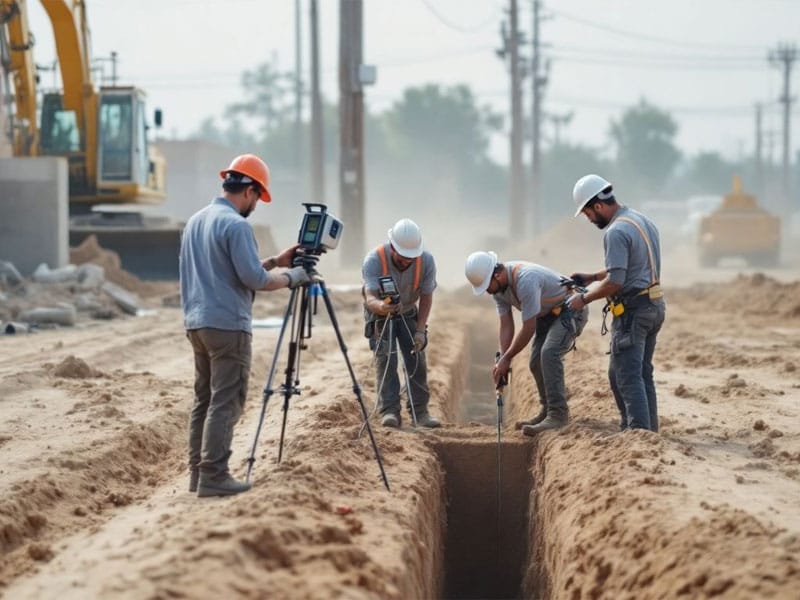
The Complete Guide to Utility Location Laws For Excavators In Maricopa County
Accidentally hitting underground facilities while digging can cause serious problems.
In Maricopa County, laws require you to locate utilities before excavating.
This guide will walk you through these digging laws and help prevent costly damages.
Key Takeaways
- Always contact Arizona 811 at least two working days before digging. This step helps locate underground utilities like gas lines, water pipes, and cables.
- Utility markings are valid for 15 working days. If they fade or get damaged, call Arizona 811 again for updates before continuing excavation.
- You need permits to dig in public utility easements or right-of-way areas like sidewalks and streets. Local authorities require approval to avoid damage to buried facilities.
- Failure to follow rules can result in fines of up to $5,000 and repair costs for damaged utilities such as reclaimed water lines or gas pipes.
- Following Maricopa County laws protects you from accidents, protects underground systems, and prevents costly penalties during excavation projects.
Key Utility Location Laws in Maricopa County
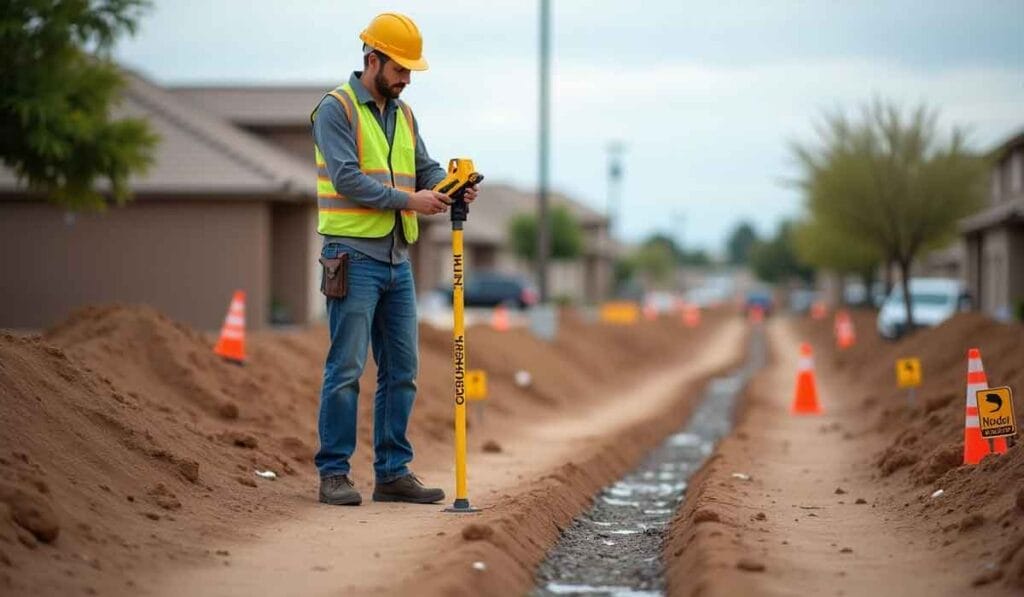
Before you dig, know the rules for locating utilities in Maricopa County.
These laws help keep everyone safe and prevent damage to underground facilities like cables and water lines.
Requirement to Use Arizona 811 Before Excavation

Before digging, you must contact Arizona 811.
State laws require you to call at least two working days before starting any excavation.
This system helps locate underground facilities like cables, pipes, and fiber optics.
Failing to notify Arizona 811 can lead to damaged utilities, costly repairs, or safety hazards.
Utility locators will mark lines for services such as water heaters, reclaimed water systems, or cable television in your dig site.
Doing this protects you and avoids trouble with utility companies.
Calling 811 is more than a step; it’s a legal requirement that ensures safety.
Validity Period of Utility Markings
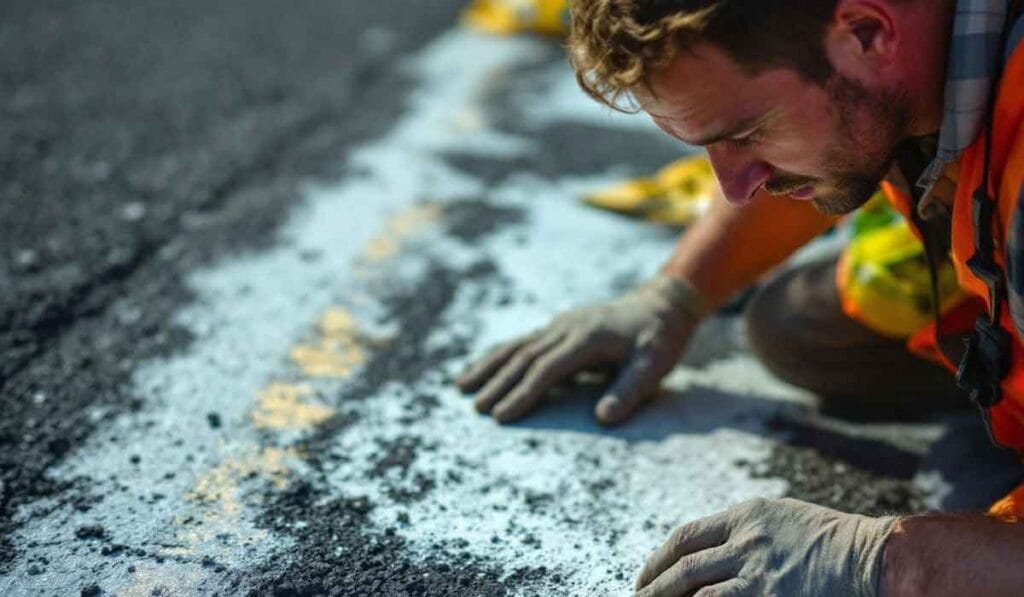
Utility markings don’t last forever.
In Maricopa County, they are valid for 15 working days from the day they are placed.
This gives you a limited time to complete your project safely.
Weather or ground conditions may cause the markers to fade or get damaged.
If this happens and digging hasn’t started yet, call Arizona 811 again.
Utility locators must refresh the markings at your dig site before work continues.
Always check that the markings remain clear and accurate as you prepare for excavation around underground facilities!
Liability for Damages During Excavation

Damaging underground facilities can lead to costly repairs.
You could be held responsible for any harm caused during digging, including damage to utility lines or reclaimed water systems.
The law requires contacting Arizona 811 before starting work, which helps prevent accidents and reduces liability risks.
Failure to verify markings at the dig site may increase your chances of hitting buried utilities.
Utility companies might bill you for damage and service interruptions caused by negligence.
Always double-check markings to protect yourself from legal trouble and ensure safe excavation practices.
Steps for Excavators to Ensure Compliance
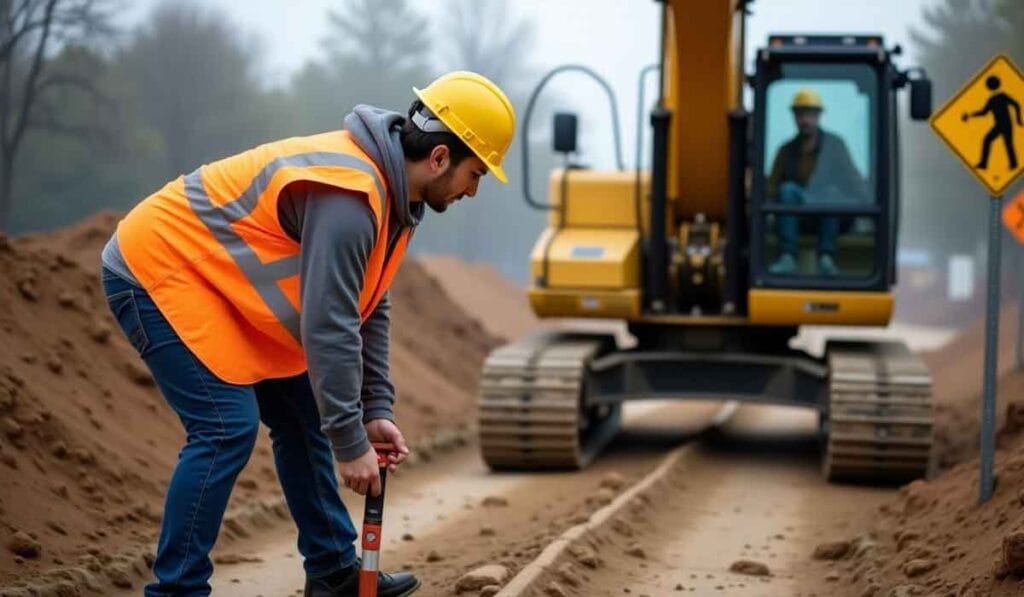
You must follow strict steps before digging at any site.
Pay close attention to markings from utility locators to avoid hitting underground facilities.
Submitting a Ticket to Arizona 811
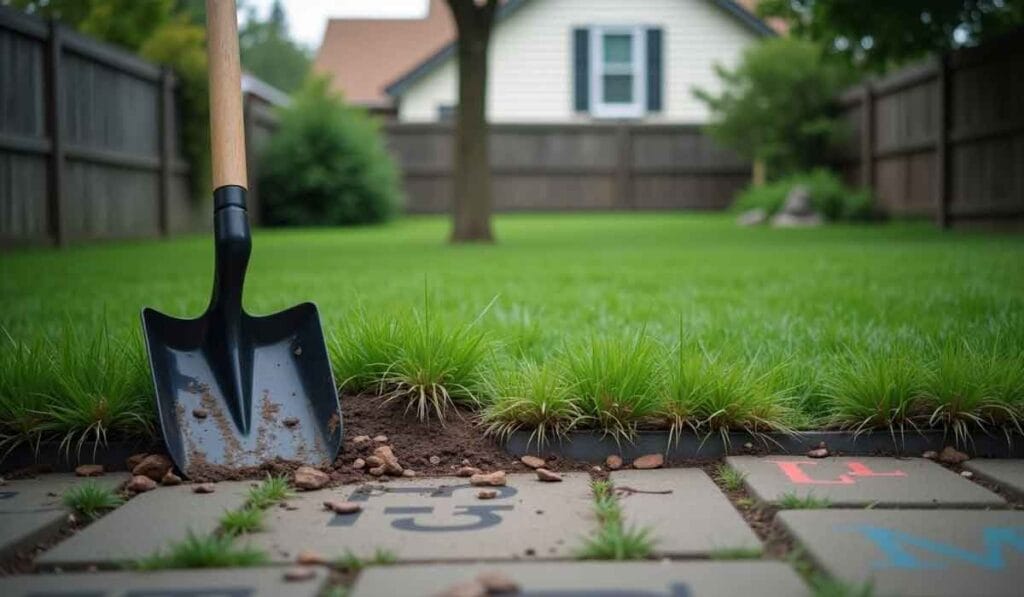
Contact Arizona 811 before digging at your site.
To report the dig location, submit a ticket online or by phone.
Provide details like the address, type of work, and start date.
This step helps utility locators mark underground facilities such as gas lines, reclaimed water pipes, and electrical cables.
Wait for confirmation that your request has been received.
Utility companies will then visit your property within two working days to complete markings.
This process ensures damage prevention and keeps you compliant with local laws when preparing for projects like installing an HVAC system.
Waiting for Utility Markings to Be Completed
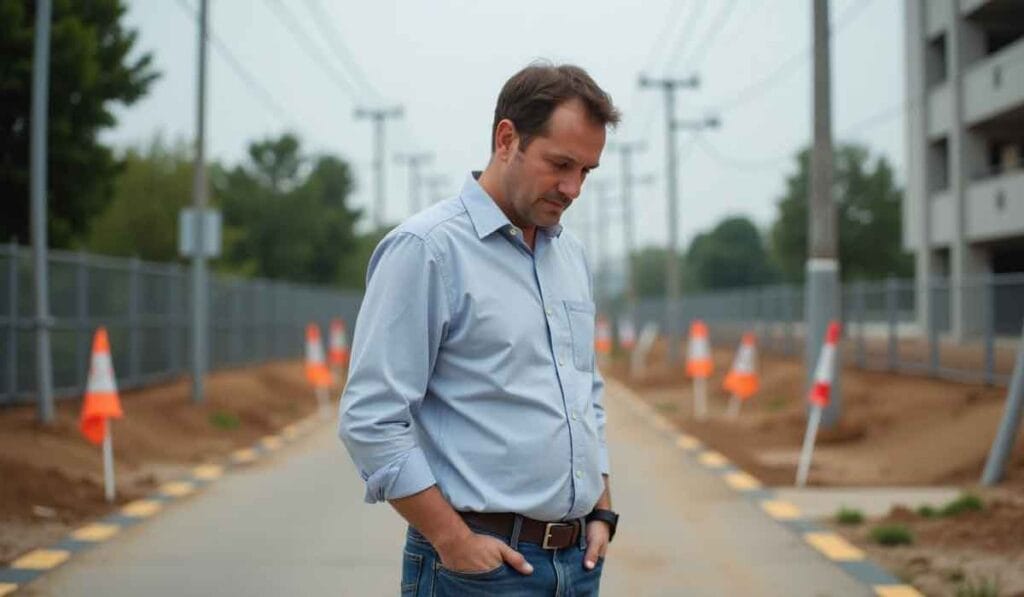
Utility locators need time to mark underground facilities at your dig site.
This process usually takes two working days after you submit a ticket to Arizona 811.
You must wait until all utility markings are complete before starting any excavation.
These markings show the location of things like reclaimed water lines, gas pipes, and electric wires.
Utility companies use paint or flags for clear identification.
Starting too soon can lead to damage and costly repairs.
Always double-check that every required marking is in place before digging begins.
Verifying Markings Before Digging
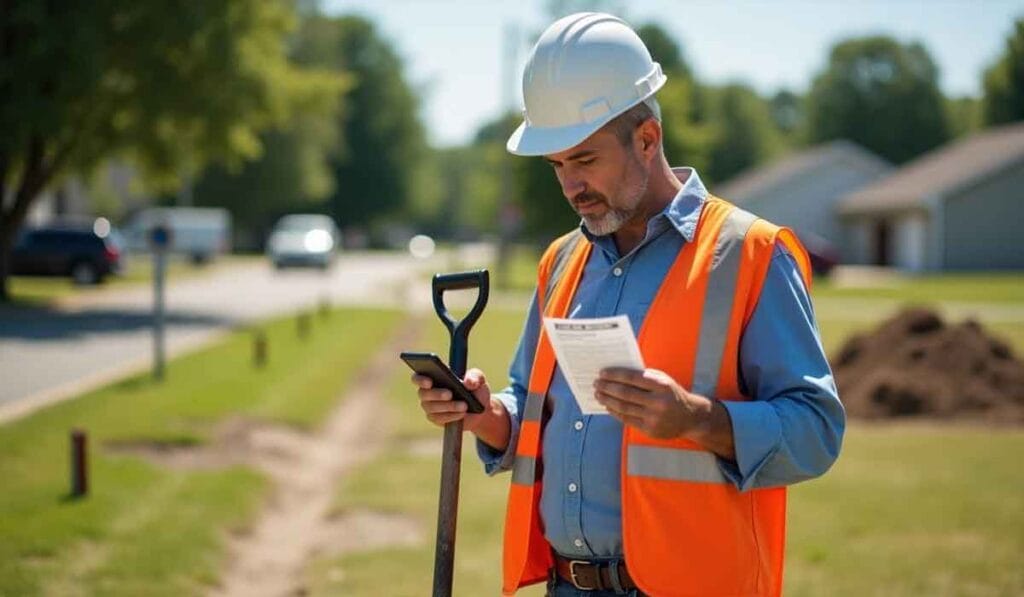
Check the utility markings at your dig site carefully.
Please make sure they are visible and match the details on your Arizona 811 ticket. Faded or incomplete markings can lead to accidents with underground facilities.
If something looks unclear, contact utility locators. They will confirm or update the markings for safety.
Once done, you can move forward with waiting for proper permits and approvals for excavation.
Permits and Approvals for Excavation
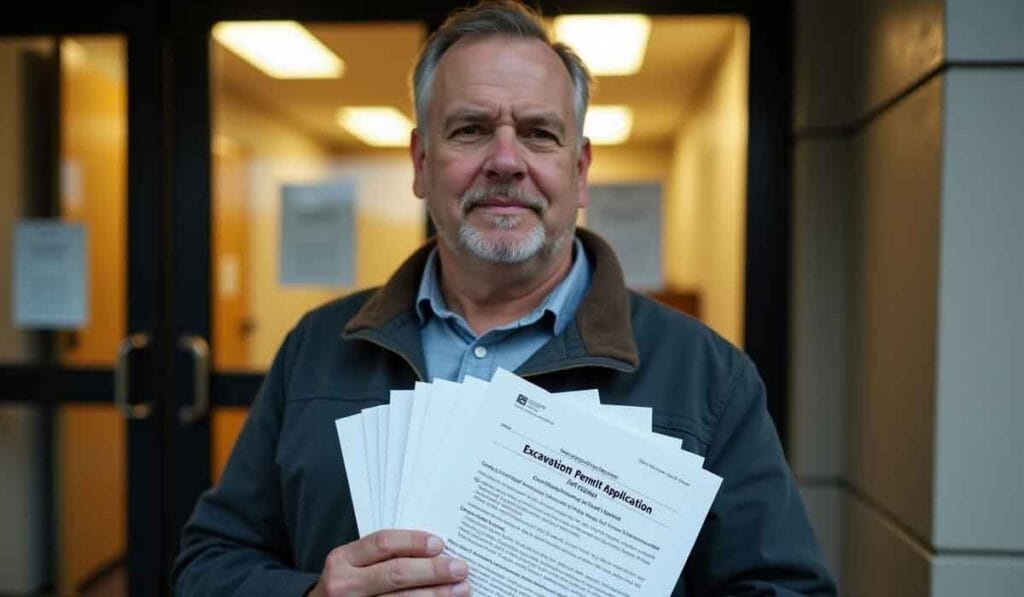
You need the right permits to dig in public areas, so check with local offices first.
Civil Permits for Public Utility Easements
Local authorities issue these permits to track and manage excavation projects.
Utility companies may also request approval before work starts on the dig site.
It helps prevent damage and service disruptions, safeguarding both workers and residents.
Always check with your local department to confirm you have proper authorization before digging.
Requirements for Excavating in Public Right-of-Way
You need special permits to dig in public right-of-way areas.
These spaces include sidewalks, streets, and other land controlled by the local government.
Apply for an excavation permit from your city or county before digging.
Contact Arizona 811 to locate underground facilities like reclaimed water pipes or gas lines.
Follow all safety rules during the project.
Utility locators must mark any buried lines at your site before work begins.
When digging near utility markings, use proper tools and avoid hitting marked zones.
Violating these laws can lead to fines or damage costs a utility company charges.
Penalties for Non-Compliance
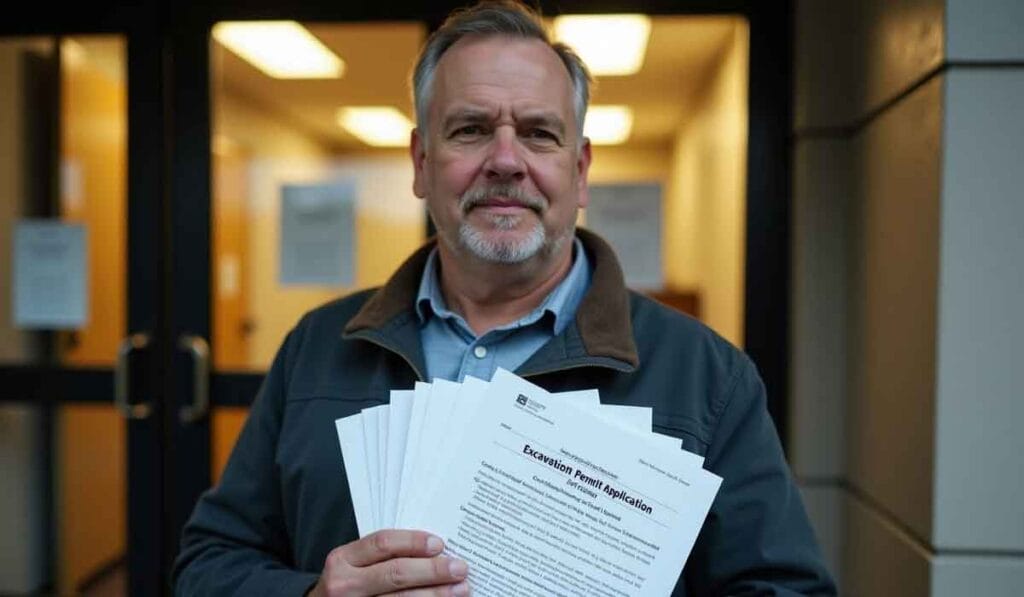
Failing to follow digging laws can lead to steep fines.
In Maricopa County, you may face penalties of up to $5,000 for damages caused during excavation.
Ignoring utility marking rules puts both underground facilities and people at risk.
Damaging utilities like reclaimed water or gas lines often means paying the repair costs yourself.
Liability does not stop there; delays and legal action could also increase expenses.
Always follow the rules to avoid these harsh consequences.
Conclusion
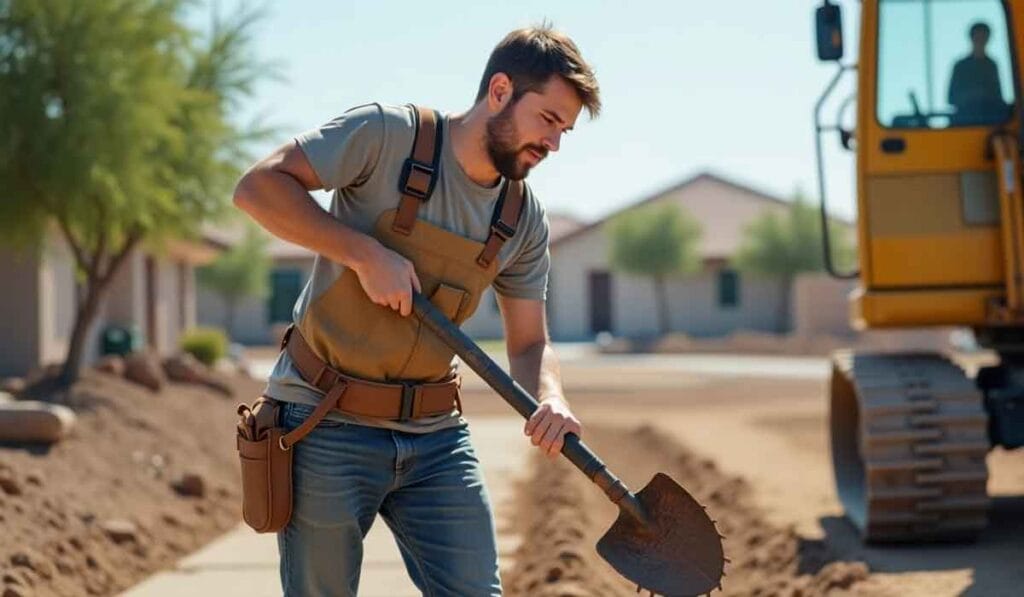
Digging laws in Maricopa County focus on safety and damage prevention. Following these rules protects underground facilities and keeps you free from penalties.
Use Arizona 811, check utility markings, and comply with all permits.
Safe digging helps maintain energy services like water heaters, reclaimed water lines, and smart systems at home.
Always plan and dig responsibly!
FAQs
1. What are utility location laws for excavators in Maricopa County?
Utility location laws require excavators to identify underground facilities, like water or gas lines, at a dig site before starting work. This helps with damage prevention and ensures safety.
2. How can utility locators help during excavation?
Utility locators mark underground utilities such as reclaimed water pipes and energy distribution lines to avoid accidental damage while digging.
3. What is the waiting period after requesting utility marking?
Excavators must wait a few working days after submitting a utility marking request before beginning any site digging activities.
4. Why is following these laws important for occupational safety and health?
Adhering to these rules prevents accidents, protects workers from hazards, and avoids disruptions caused by damaged facilities like water heaters or smart thermostats connected to distributed generation systems.
5. Are there guarantees that all underground utilities will be marked accurately?
While markings aim to be precise, they depend on proper requests and clear communication about the dig site details between excavators and utility providers.
